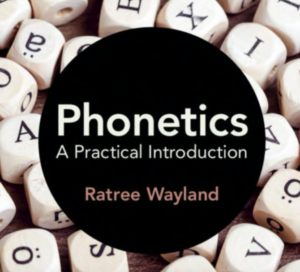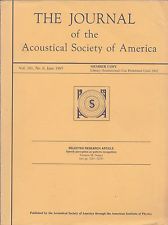My favourite way of understanding how the Viterbi algorithm is applied to HMMs. Can also be helpful in understanding search for unit selection speech synthesis.
Wayland (Phonetics) – Chapter 9 – Hearing
Introduces basic concepts in human hearing – it may be useful to read the bits on decibels/loudness and the Mel and Bark scales.
Wayland (Phonetics) – Chapter 8 – Acoustic Properties of Vowels and Consonants
An overview of the properties of vowels and consonants
Wayland (Phonetics) – Chapter 7 – Digital Signal Processing
An intuitive introduction to acoustics digital signal processing
Wayland (Phonetics) – Chapter 6 – Basic Acoustics
A concise introduction to acoustics: sounds, resonance, and the source-filter theory
Wayland (Phonetics) – Chapter 5 – Phonemic and Morphophonemic Analysis
An introduction to the concept of phonemes, allophones and some common phonological alternations.
Wayland (Phonetics) – Chapter 1 – Speech Articulation: Manner and Place
A concise introduction to articulatory phonetics
Wayland – Phonetics: A Practical Introduction
This phonetics textbook covers articulatory and acoustic phonetics as well as an introduction to digital signal processing.
Vaux & Samuels – Explaining vowel systems: dispersion theory vs natural selection
Cross-linguistic distribution of vowel systems
Turk et al. – Acoustic Segment Durations in Prosodic Research: A Practical Guide
A guide to segmenting speech using acoustic features (i.e., spectrograms)
Taylor – Section 12.7 – Pitch and epoch detection
Only an outline of the main approaches, with little technical detail. Useful as a summary of why these tasks are harder than you might think.
Taylor – Section 12.4 – Linear-Prediction Analysis
An overview of the background and maths behind linear-prediction methods for modelling the vocal tract as a filter.





 This is the new version. Still under construction.
This is the new version. Still under construction.